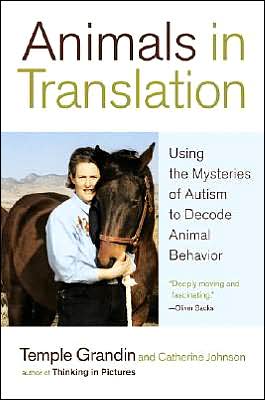
“You can’t get anything past a cow.”
Temple Grandin is talking about how cows see details. A yellow raincoat might scare them, or reflections in puddles, or the contrast between bright and dark. Cows register all the things humans might not notice. Temple Grandin goes to animal feedlots and farms and looks at things the way a cow might see them. She translates the details seen by cows for people and argues that it’s her autism that allows her to see as a cow sees.
I didn’t know how detail-oriented and curious cows are until I went to the Pyrenees and was hired to watch cows pastured in the wild. My job was to count how many times they chewed their cud so the farmers could better calculate how much silage they’d need once the cows came off their warm-weather mountain grazing.
It was late spring. I knew the cows (all heifers and giddy with the green of grass after winter hay) had their eye on me, but it wasn’t until I sat in the car one rainy day that I realized how inquisitive cows are. One came to the window and licked the glass. She looked at me and I looked at her, and in her eyes I read the story of all cows.
I saw the sacred, slender horns of Egypt, smelled every blade of grass ever eaten and returned to the earth through her body, tasted the cold milk white of her nectar frothed into cream, aged into cheese, churned into the yellow slide of butter. There in her cow saucer eyes glimmered the idea that one species might nourish another and the decisions made by ordinary people about what she meant to them and where they traveled, settled, and moved because of her.
She blinked her languid lashes and ambled away from the car. Another cow came, and another, each one offering a piece of their collective cowness. When they finished their investigation and had each left a tongueprint on the car window, they returned to the mountain grass of late spring, a bite here, a gambol there as the rain subsided.
Kim Dana Kupperman is the managing editor of The Gettysburg Review. Her writing has recently appeared in Best American Essays 2006, Hotel Amerika, Interdisciplinary Studies in Literature and the Environment, River Teeth, and elsewhere, and is forthcoming in Ninth Letter.
